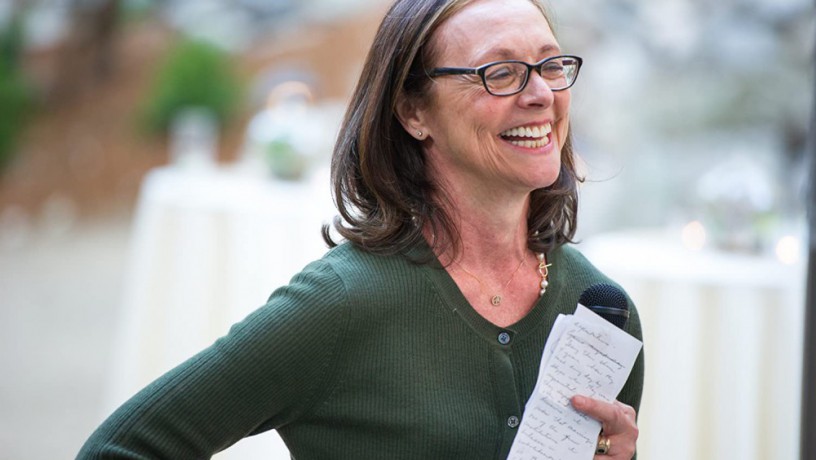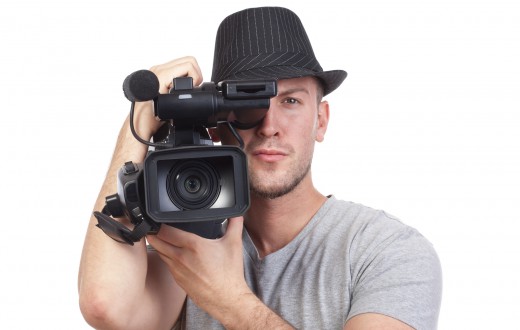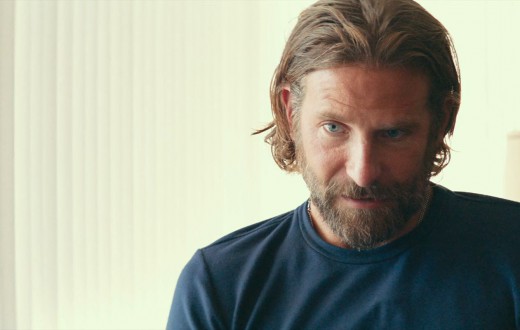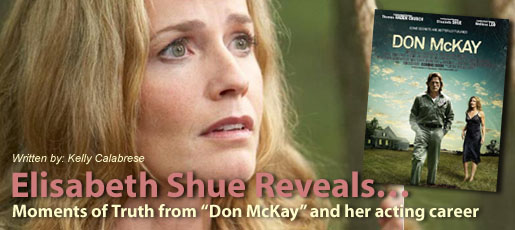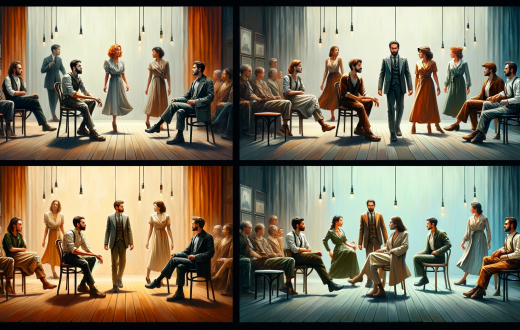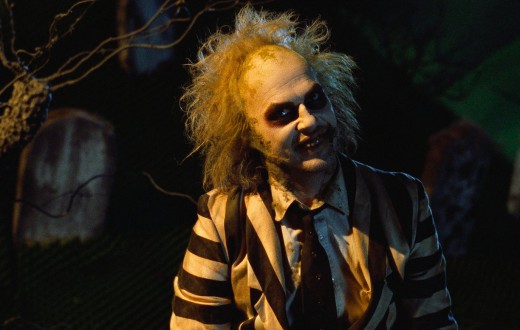Donna Morong is an award-winning Los Angeles-based Casting Director. Highlights of her incredible career include fifteen years as a casting executive at The Walt Disney Company, where as part of a team, she cast a list of major stars including Rachel McAdams, Anne Hathaway, Jennifer Garner and Chris Pine in their feature debuts, and cast an Oscar-nominated film (Gone Baby Gone). But being a successful Casting Director is not where it ends for Ms. Morong. She is also a gifted teacher and owner of the Donna Morong Acting Studio, where she brings her experience of over 25 years in the industry, as well as her training (being a former actor), to her acting students. As an actress myself, I found myself wishing I was one of her lucky pupils in LA. But still, I was happy to have at least been given the opportunity to do this phone interview. Filled with both her warmth and wisdom, it was a learning experience in itself.
What is the most rewarding part of your job as a Casting Director?
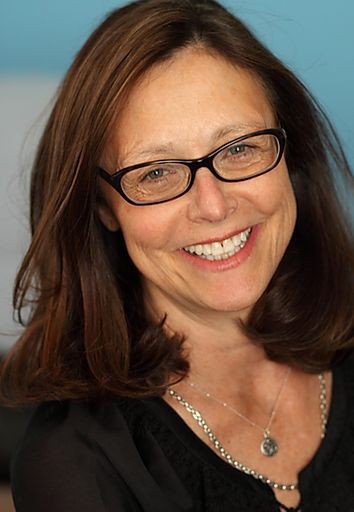 I don’t know that there’s one thing that I would consider the most, but one of the most I would say exciting parts of my job is when I’ve cast someone who is an unknown, and then they have an amazing career. It’s not a moment but it’s rewarding over time to see that. In terms of the moment, it’s being in an audition space, being with the director and producer, and an actor just does something so incredible and inventive with a part that they’re reading for that we’re all blown away, and it just feels magical at that moment. It’s kind of transcendent.
I don’t know that there’s one thing that I would consider the most, but one of the most I would say exciting parts of my job is when I’ve cast someone who is an unknown, and then they have an amazing career. It’s not a moment but it’s rewarding over time to see that. In terms of the moment, it’s being in an audition space, being with the director and producer, and an actor just does something so incredible and inventive with a part that they’re reading for that we’re all blown away, and it just feels magical at that moment. It’s kind of transcendent.
That does sound very special. And actually leads me to my next question kind of perfectly. You’ve had an amazing career, launching names like Anne Hathaway, Heath Ledger, Chris Pine and Rachel McAdams among others. When you originally auditioned any of these actors, did you realize you were discovering a future star? If yes what was it about them or their audition?
No I can’t say that I thought that, oh they’re going to be famous or they’re going to be a future international star. But I definitely saw something very special in them. I don’t think anybody can predict another person’s career. But they all were people who had that indefinable quality that makes people a star. And obvious talent and charm. It always kind of amazes me frankly, like when Chris Pine became this action star. When I met him, we put him in his first movie. He’s very humble. His dad is a well-known actor, Robert Pine. He was completely charming and nice, very authentic. I was with another Casting Director, Marcia Ross, and we were reading him together. He came off as just a really regular nice guy, made great choices and was very natural in the role. And we brought him to Garry Marshall, and Garry fell in love with him. And I think about the premiere of the movie at Disneyland. He was still a very, very humble sweet guy. I don’t think I ever could have predicted that he would become such a superstar. Part of it is just talent meets opportunity, right?
What is the biggest difference between doing casting for a big studio film versus an independent film (since you do both)? Is it a very different process?
It’s not a completely different process but it is different. That’s a really great question because with a studio film you have every resource, and you’re paying top dollar for actors, and if you’re working on a project that’s interesting everybody wants to come in and audition for you. Almost everybody, of course there are those exceptions. But with an independent film it’s very often a real struggle. You have to be much more creative and much more inventive. And it’s not just thinking about maybe the most obvious people. You have to dig much deeper. And you also have to sell the project more. So that makes it challenging. And people are not doing it for money, they’re doing it because the project is worthwhile. And I work with a lot of first-time directors, or a director who is not known in the United States. If they’re not well-known then you also have to convince the reps that this person is a really talented director, and they’re capable and that this project is actually going to happen. So many projects don’t happen. So in that sense it’s a very different process. But in terms of casting someone and finding a person that’s right for the role, I think that works kind of the same no matter what level of casting.
What was it like to work on a film like Gone Baby Gone that garnered so many awards, including one for yourself? Is that just really special when something like that happens?
Yeah it’s really special. It was such an unusual circumstance too, because I knew Ben Affleck as an actor. I was at the studio at Disney and he had done Armageddon, and he would come by and say, “Hi.” And he was doing this movie and it was being shepherded by one of the heads of Disney, Dick Cook. It was Ben’s first movie as a director. He’d been a writer before and had great success with Good Will Hunting, winning an Oscar. But he was going to both write and direct this movie, based on the book by Dennis Lehane. Because Ben was so busy with many projects, the process was really stretched out. I can’t remember exactly how long it took, but it was months and months. Amy Ryan, she’s someone I knew from New York theater. And I’ve always been a really big fan of hers. And she came in and she just did this amazing Boston accent. And Ben had said he didn’t want anybody who wasn’t authentically Boston. Which is crazy because it’s a pretty small pool. And he wasn’t going to consider anybody British. They were completely out of the question, even if they could do a good accent. And she fooled him. She’s from Queens. She has a great ear, amongst other things, and she’s very talented. And then when she got an Oscar nomination that was just beyond exciting. She deserved that recognition, she was so great in that part. But there are lots of great roles over the course of a year. So I was pleasantly surprised. Thrilled you know. It was very, very exciting.
Since you’re a Casting Director, some questions about auditions: What are the biggest mistakes an actor might not realize they’re making in the audition room?
I think one of the biggest mistakes is actors who apologize. I think that immediately kind of lessens your credibility, and concerns whoever is on the other side of the table. You know everyone is very nervous when they start a project, all of the creators. Because there’s so much time and money invested, and effort and dreams. And there’s just so much that goes into any project. So if an actor comes in and they don’t seem secure in what they’re doing. Even it could be just apologizing for, “Oh I’m sorry I’m late.” I mean that’s not terrible, to say if you were caught in traffic. But you shouldn’t be late frankly. But especially apologizing for not being prepared, apologizing for not having read the script. There’s so many different reasons why people apologize. And I think that is just not acceptable and not smart.
Well that’s a really good one and leads kind of perfectly to my next question: How can an actor go into the audition room with the most confidence?
Every actor is different. Every actor is an individual human being, different make up. And some actors never get over their nerves. So I don’t think that there’s a blanket rule about that. But I do have to say that the more prepared an actor is, the more confidence they’ll have. That, “This is my take on the role and I’m owning it. And I am here to collaborate.” And understanding their function, that you’re part of a team, and not that I have to please these people. It’s a mindset. That, “I have something essential to offer, and that I have given this thought, and my interpretation is valuable and could make a real positive contribution to the project.” And really believing that. I think that gives someone confidence. So be prepared. Hopefully that will give you confidence and I think it generally does.
So being prepared, but also having the right mindset that you have something to offer. And we’re all in this together. It’s not about one person having power over the other.
Right. I know it feels that way. The other thing I think that gives someone confidence, and I have observed this as well, is having your own thing. If you’re creating your own work, if you’re working with other artists and you’re getting fulfillment from doing things, even if it isn’t acting. If it’s photography or skateboarding or whatever it is that you have a passion about, I think that really feeds you as a human being also, and gives you just confidence as a human being that you will bring into the room.
That makes a lot of sense too. Just doing things to feed your soul.
Exactly right. So your whole identity isn’t tied up with this audition or getting this audition.
That’s a good perspective to have, thank you for explaining that. You are also a teacher with your own acting studio. Actors are always told they need to continually train. Can you explain why that’s so important? Why isn’t having talent enough?
In England they have very concentrated training, and people start doing theater very often at a really young age because there’s a whole tradition there of theater. So once actors become professional they don’t train, they’re done. Whereas in the US actors continuously train. And I don’t think one is better than the other, but I think training is critical for most people. There are always exceptions to that, actors who are just a natural talent and have an intuitive way of working. Doesn’t mean that they don’t work hard, but they sort of found their own way without having trained. But for 99.9% of the actors that I know, including all the ones that you mentioned earlier, they all trained. The benefit of continuously training is that acting is kind of like being an athlete. It’s a muscle, you’ve got to exercise it. The more you exercise it the better you get. So it’s really important to keep exercising that muscle, and especially in a period of time when we can’t meet together. You can do classes online. I think it’s very helpful to have a third eye. So that when you’re working on material you have someone looking at it and giving you feedback. I think that really is useful and helps someone grow. And also getting back to the confidence thing. If you are constantly working at your craft I think that in itself gives you confidence.
What is the biggest benefit of taking a class taught by a Casting Director?
I think it depends what kind of class it is and who the casting director is. I partnered with Deb Aquila for a long time. And we were both trained as actors, and we got into casting through acting. Now there are some very good Casting Directors who teach classes and never trained as actors. What they have to offer is helping an actor deal with the audition experience. So I think it depends on what the actor is looking for as far as the kind of class they want. If the Casting Director specializes in something. I was trained in Meisner so I can teach Meisner. I have years of experience as a Casting Director, so I teach audition technique. And I do scene study because I have trained as an actor, I have the experience. So I think as an actor, when you’re looking for a teacher, you should check out the studio if you can. And also look for a teacher that you feel really knows the area that you want to develop in, whatever that area is. There’s some Casting Directors who are also directors. Being attracted to casting, it’s very often people who have other skills and talents, or were actors and then went into casting.
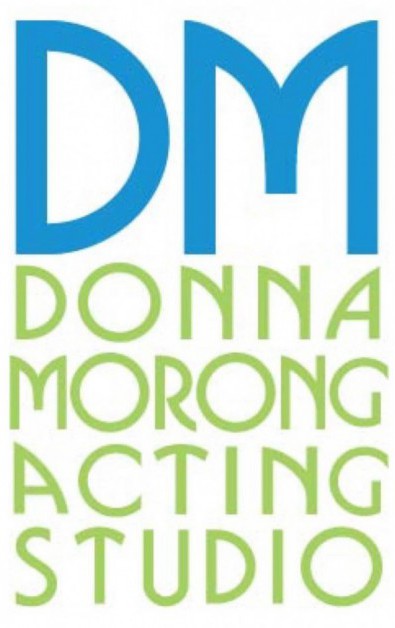 This question is geared more for our LA readers: What is your most popular class for beginners, and for those more advanced?
This question is geared more for our LA readers: What is your most popular class for beginners, and for those more advanced?
Well I’d say for beginners, and I don’t know that’s necessarily the best class but the most popular class, would be my audition class. Just because people think, “Oh well if I know how to audition that’s all I need to know.” Some people when they’re starting out have that mistaken notion. I actually think the class is much better suited to people who work, because they have the audition experience and can really refine it. They also have acting technique. And you really actually need acting technique in order to improve your audition technique. And then my most advanced class, is my professional scene study class with directors. And we have a new director every two weeks and different material. So I prep the actors. Week one we do a table read, and then week two they work with the director, and they have to be camera-ready. They have to really have some craft, know what they’re doing, know how to prepare and want to learn how to work on set and get more experience on set. And then we watch it, we play it back the following week.
That sounds like a great class.
It’s great for actors to get to work with different directors, because each director has a different style and very often they’re not like acting teachers. Their focus is not on the acting. If they cast you they figure you’re going to take care of it. And they may give you a note but they may not have time. Especially in television.
When life gets challenging as it has been with this quarantine, what is the best way for an actor to stay on track with their career?
I have been talking to a lot of actors in the past month. And I know it’s a really challenging time for many reasons. Different challenges for different people. Different life circumstances. But what I would say, if you have a passion for the craft, now is the time when you can read plays, when you can organize play readings or script readings with your friends, do Zoom performances. I think also developing skills. Like one actress told me she’s taking up piano or you could study a foreign language, or a sport. Just to expand your skills. There are online classes too. I’m starting an online class for auditioning with Zoom.
Very practical!
Well it’s very necessary because it’s hard. None of us really have done this before so we’re all learning together. It’s new territory for everybody. And there’s a skill to it and it’ll just take getting accustomed to. So now is a great time to work on that as well.
—
Doing what she can to help actors succeed even in these unprecedented times- Donna Morong is truly a teacher and Casting Director that cares. For more information on her Zoom audition class: https://www.donnamorongactingstudio.com/classes

